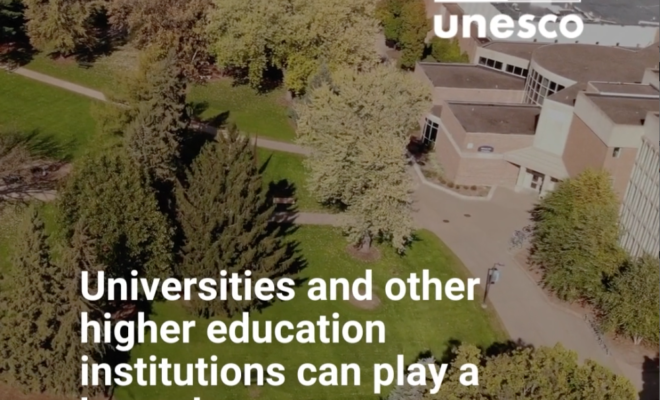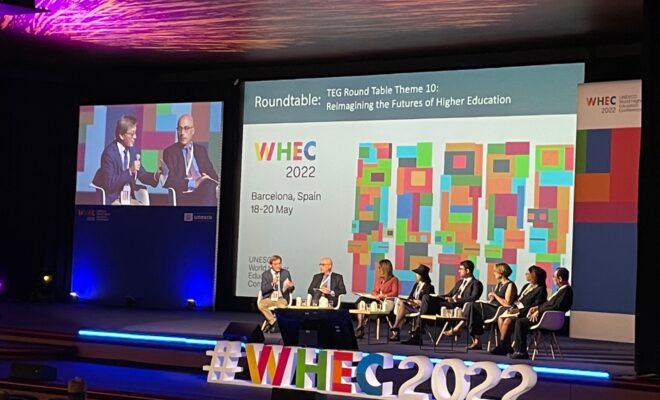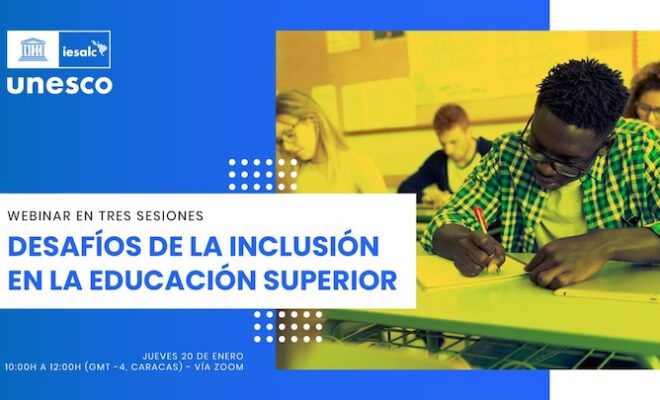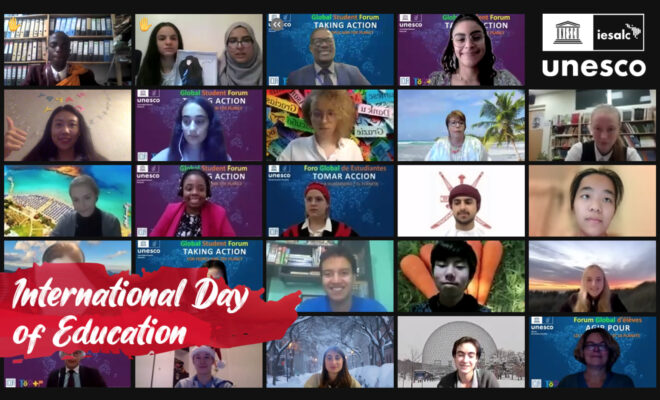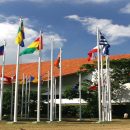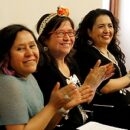Higher Education as a human right: Perspectives from youth and Special Rapporteur
Participant: Koumbou Boly-Barry, UN Special Rapporteur on the Right to Education Youth perspectives on higher education as a human right: Kenisha Arora, UNESCO’s Youth Representative for North America and Europe through the SDG4 Youth Network; Eva Papalicolaqui, coordinator of the Sustainable Development Solutions Network (SDSN) Hub, Athens University of Economics and Business; Eréndira Rodríguez de León, Founder of the social initiative ADUX: Leaders for Education, México. Moderator: Emma Sabzalieva, Head of Higher Education Research and Policy Analysis at UNESCO IESALC Everyone has the right to education. Not only early childhood, primary or secondary education but the right to lifelong education. […]
©
7 June, 2022
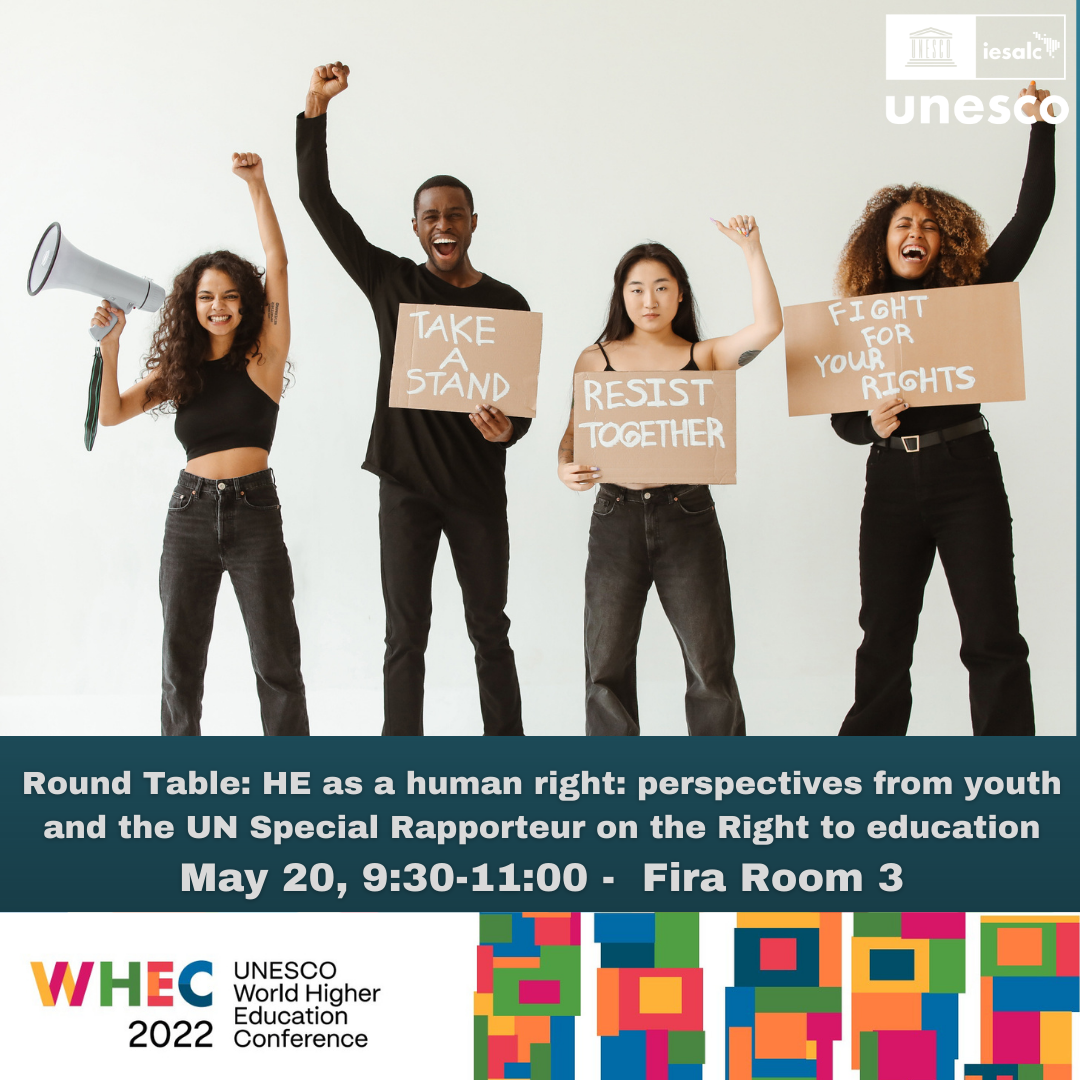
Participant: Koumbou Boly-Barry, UN Special Rapporteur on the Right to Education
Youth perspectives on higher education as a human right: Kenisha Arora, UNESCO’s Youth Representative for North America and Europe through the SDG4 Youth Network; Eva Papalicolaqui, coordinator of the Sustainable Development Solutions Network (SDSN) Hub, Athens University of Economics and Business; Eréndira Rodríguez de León, Founder of the social initiative ADUX: Leaders for Education, México.
Moderator: Emma Sabzalieva, Head of Higher Education Research and Policy Analysis at UNESCO IESALC
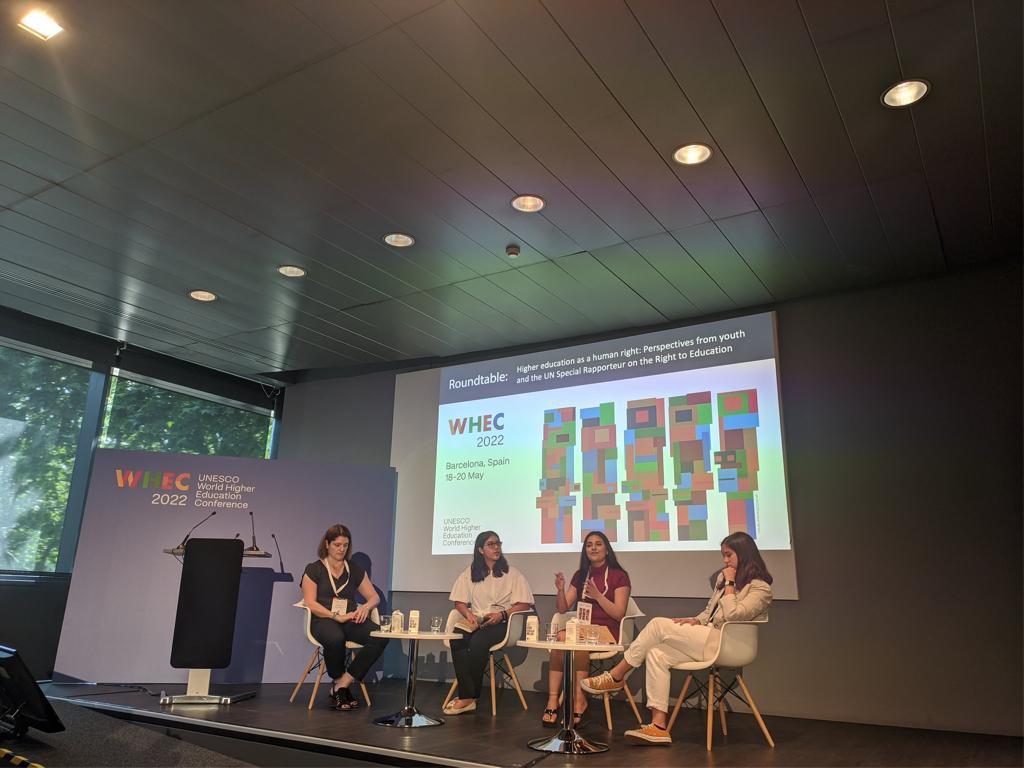
Keypoints
- Everyone has the right to education. Not only early childhood, primary or secondary education but the right to lifelong education.
- Teaching must be flexible to adapt to the needs and demands of the society they serve
- It is not possible to talk about HE without addressing academic and research freedom. Academic freedom and scientific activities need to be implemented by institutions.
- To be autonomous is to enjoy independence and to make decisions compatible with the public control system.
- Knowledge needs to be culturally contextual and accessible
- HE is a common good, science as a common good
- Special protective measures need to be put in place for refugee students (of ethnic and foreign origin, for example displaced students in Ukraine).
- Access to quality public HE as a fundamental human right
- Governments prioritize primary and secondary education, often forgetting HE.
- Digitalization of HE shrinks the space for data protection of users, especially students.
- Ethical questions on funding source vs accountability of the university to the public and research.
- Corruption is an obstacle for better funding of public HE
- Listen to youth – include them in policy making
- Governments don’t want to spend their money on HE therefore they want to encourage the private sector to fill that gap and that can be very damaging to research. This also leads to the commercialization of higher education.
- We need to think about the rights that we have when we navigate online spaces, especially now that online education is so widespread.
- 1 in 3 students are bullied in HE and there is no law protecting them from violence.
- It’s not only about student well-being when it comes down to the basics of safety.
- HE should emphasize leadership skills and community service so that the students will have a positive social impact in their communities. Enhance leadership towards social work.
- There is no point in having all the laws and protocols if we don’t act.
RELATED ITEMS

